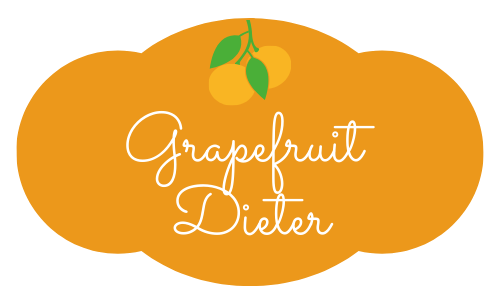A carbohydrate is a class of organic compounds. There are two types of carbohydrates: simple carbohydrates and complex carbohydrates.
Simple carbohydrates include glucose, fructose, and galactose which in turn can form sucrose, lactose, or maltose. Complex carbohydrates include starch, glycogen as well as fiber.
What are carbohydrates?
Carbohydrates are molecules composed mainly of carbon, hydrogen and oxygen atoms.
The term glucid comes from the word glyκýs or glukús which means sweet.
In nutrition, carbohydrates refers to one of the three important macronutrients. The other two are protein and fat.
The main role of carbohydrates is to provide energy. This is obtained when the body transforms them into glucose. In excess, carbohydrates can also be converted to triglycerides or body fat.
Types of carbohydrates
Structurally, all types of carbohydrates are made up of similar elemental units called saccharides.
However, carbohydrates can be found in several food groups:
- Sugars: they’re short chain carbohydrates that contain one or two saccharides. Also known as monosaccharides or disaccharides, they are sweet and are quickly absorbed by the body. Some examples are glucose, galactose, sucrose, and fructose.
- Starches: they’re long chains of glucose molecules. They are usually found in vegetables and cereals. They are generally digested slowly by the body.
- Fiber: it is a particular type of carbohydrate, it cannot be digested for energy, so it does not provide calories. However, its consumption may have benefits for the intestinal flora.
- Sugar alcohols: due to their structure, they also fall into the category of carbohydrates, they are sweet but low in calories.

Are carbohydrates essential?
More and more people are reducing carbohydrates in their diet and claim that they are not an essential nutrient.
While this is technically true, as the body can function without carbohydrates. The fact that carbohydrates are not essential nutrients does not mean that they cannot be beneficial.
In fact, many carbohydrate foods are incredibly healthy. Vegetables and fruits are good examples of these foods that are accompanied by essential nutrients for the body.
According to May Clinic, a person should eat up to 225-325 grams of carbohydrates per day to keep their body in optimal health (1).
Bad carbohydrates or refined carbs
Refined carbohydrates are those that have had much of their essential nutrients and vegetable fiber content removed, and count as empty calories.
Examples of these foods are refined sugars and flours.
Several studies affirm that the consumption of refined carbohydrates is associated with health problems such as obesity and type 2 diabetes. Therefore, if you want to stay healthy, you should avoid this type of carbohydrate. (2.3)
Also, refined carbohydrate foods generally lack essential nutrients. In other words, they are “empty” calories.
How to choose good quality carbohydrates?
As a general rule, carbohydrates that are found in their natural form are of better quality, while those that have gone through several processes are not.
If it is a whole food, it is likely to be a healthy food, regardless of the carbohydrate content it has.
Excess sugar-type carbohydrates is not recommended, not only because they can cause weight gain and obesity, but also because of their oxidative activity. Diets high in glucose accelerate cellular aging.
Of course, in nutrition it is not only about eating carbohydrates, but about achieving a balance with the rest of the macronutrients.
The FAO (Food and Agriculture Organization) and WHO (World Health Organization) propose that 60% of the energy you need comes from good quality carbohydrates.
Good quality carbohydrates are:
- Whole vegetables
- Whole fruits
- Vegetables
- Whole grains: oats, quinoa, brown rice, etc.
- Tubers: potatoes, sweet potatoes, etc.
Poor quality carbohydrates are:
- Refined sugars
- Drinks and juices with sugar
- Refined flour and white bread
- Bakery products: cookies, cakes, donuts, cakes, etc.
- Sweets: candies, sweet chocolates, bonbons

Good vs bad carbohydrates
Eating foods that contain carbohydrates and are of nutritional quality is associated with several health benefits. Some examples of these good carbohydrates are vegetables, fruits, legumes, root vegetables, and whole grains.
Some of these foods are also utilized in low carbohydrate diets such as the ketogenic or low carb diet. This type of diet consists of reducing the consumption of total carbohydrates to normalize the metabolism of carbohydrates.
Ultimately, they can help balance insulin levels and sensitivity that may have been altered by eating too much bad or refined carbohydrates.
SUMMARY
Carbohydrates are a type of organic molecule.
There are several types and classifications of carbohydrates, the most useful in nutrition is to divide them according to how the body can use them: sugars, starches, fiber, and sugar alcohols.
Good quality carbohydrates are whole grains, which are accompanied by fiber and other nutrients.
If you want to stay healthy, it is not necessary to eliminate refined carbohydrates from your diet, and moderate their consumption according to your daily activity and weight goals.
- Healthy amount of carbs per day according to Mayo Clinic. Source
- Refined carbohydrates, phenotypic plasticity and the obesity epidemic. Source
- Increased consumption of refined carbohydrates and the epidemic of type 2 diabetes in the United States Source
- Cereals, starchy roots and other foods high in carbohydrates. FAO: Food and nutrition. Source



